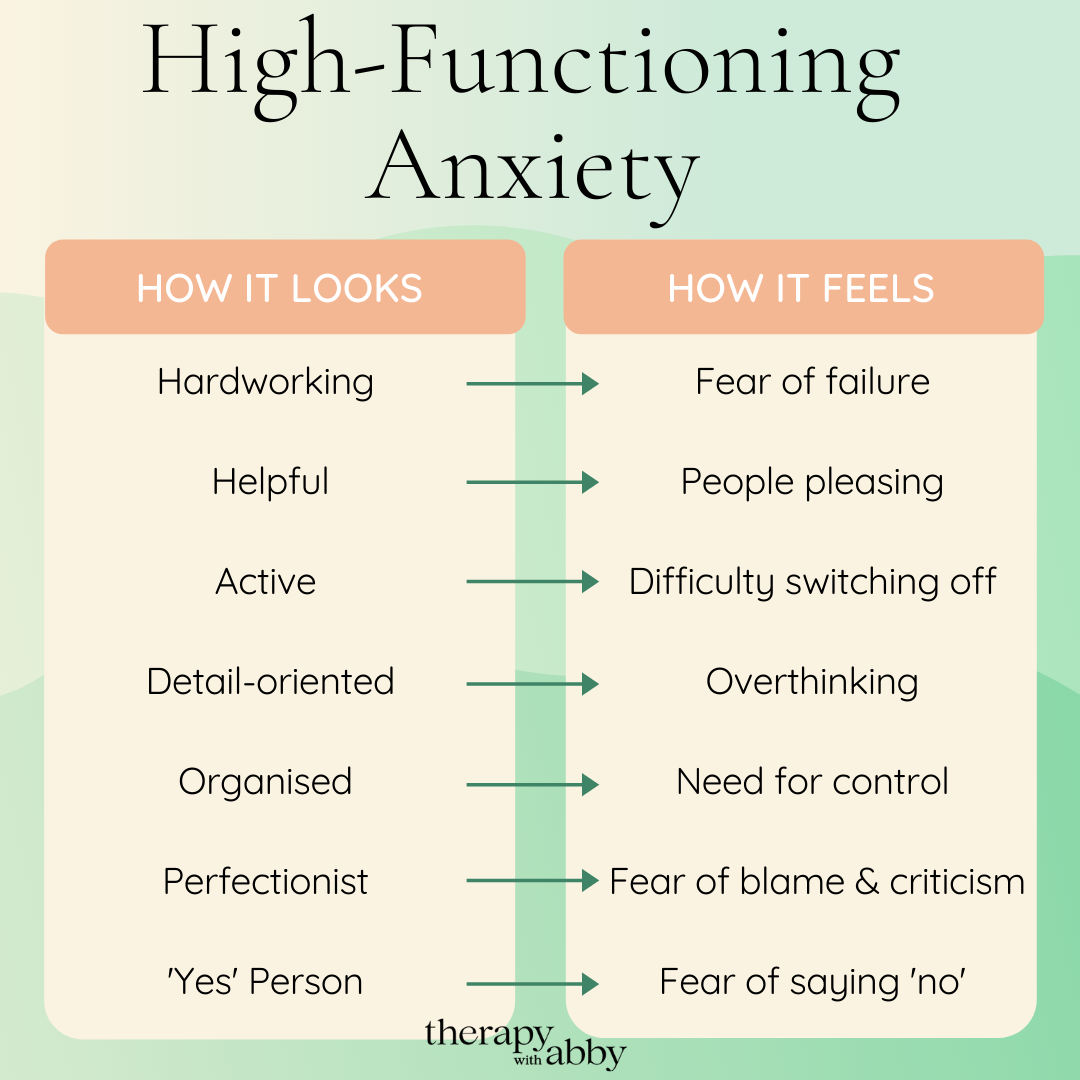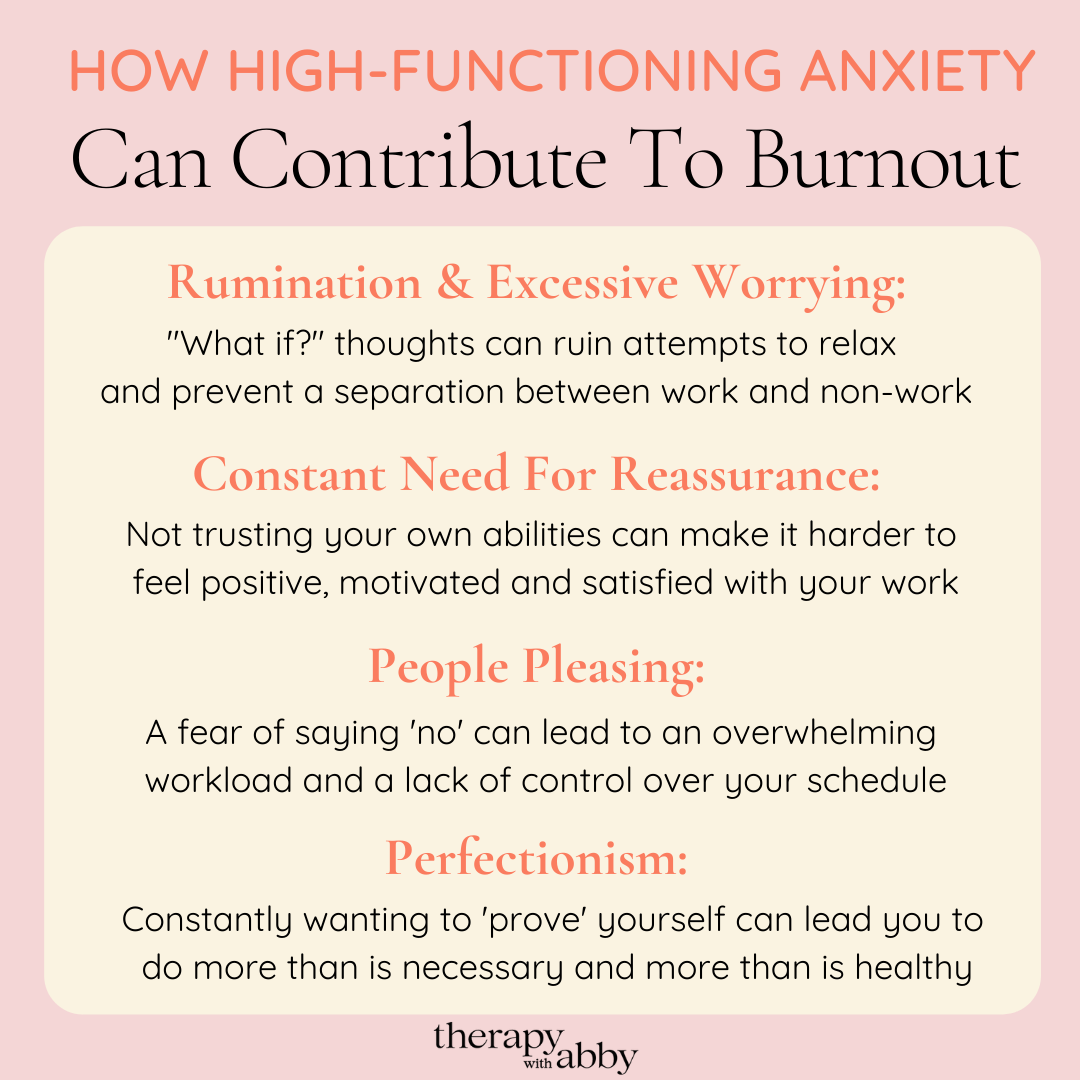What is High-Functioning Anxiety?
On the outside you’re excelling at work and in life, but on the inside? You’re filled with worry, insecurity and self-doubt.
We are all familiar with the analogy of the swan gliding across a river. The animal appears serene and graceful on the outside, but just beneath the surface, it is frantically kicking its legs to stay moving. This is a fitting way to describe people who suffer from high-functioning anxiety.
While not an official clinical diagnosis, high-functioning anxiety is an increasingly common term used to describe a person who lives with persistent anxiety but functions well in different areas of their lives, such as work, child-rearing and relationships.
When we think of someone living with anxiety, we picture them as being paralysed by it and visibly affected. While this is true of a lot of anxiety sufferers, for many the opposite is the case. They can be high-fliers and appear the height of professionalism; calm, composed and immaculately put-together. But, just like the swan, underneath they are battling with daily, crippling anxiety and a ‘nervous energy’ that propels them forward.
This is especially true for people who appear to excel at work. Many positive qualities we would apply to a model employee have a negative inverse. For example, being a perfectionist and organised can be masking a need for control and a deep-rooted fear of criticism from others. Having a busy schedule may actually be because that person feels they can’t say ‘no’, and, similarly, a ‘helpful’ person may be a textbook people-pleaser constantly seeking reassurance because they doubt their own abilities. Being ‘hardworking’ is a respectable quality, but the reality may be that the person in question is afraid of failure, and feels they can’t switch off or ‘drop the ball’. That is not to say that someone with high-functioning anxiety is actually bad at their job — far from it — but that an exterior poise may be masking a constant internal struggle.
Worryingly, we have come to normalise and reward many unhealthy traits in the workplace and frame them as positives. For example, being accessible by Zoom, email or phone 24 hours a day, working late into the evenings and on weekends, or balancing full-time childcare with a full-time job. But just because someone is sending emails at 10pm on a Saturday or rarely takes a sick day or annual leave doesn’t mean that they are excelling at their job or ‘going above and beyond’. Often they are simply scared of relinquishing control and ‘failure’, and their fear and anxiety is what drives them. It is exhausting and ultimately detrimental to their mental health and, paradoxically, their work.
It doesn’t help that the sudden and unprecedented impact of a global pandemic has thrown our normal lives into disarray, with many people expected to be ‘on’ at all times (“after all, you don't have social plans”) and balancing childcare and education with a full-time job. Social media also puts a glossy tint on reality, with influencers who appear to ‘have it all’ — a successful career, money, good looks and perfect family and home life — making us feel inferior.
Being able to switch off from work is not only healthy but is vital for our mental and physical wellbeing. Many people with high-functioning anxiety will find that they ‘crash’ at the end of the day or week — rather than making a conscious effort to switch off and put work to one side — and need to mentally and physically recharge. They may develop self-sabotaging coping mechanisms, such as binge drinking, overeating or even taking drugs. People with high-functioning anxiety appear ‘together’ on the surface and even sociable and extroverted, but anxiety can be very isolating. Appearing ‘fine’ to others is all part of the illusion, and talking about your issues, admitting to how you really feel or delegating would shatter it.
High-functioning anxiety is increasingly common and the effects of Covid-19 will no doubt have a long term negative impact on our mental health. But if you recognise yourself in any of the above, you are not alone, and you needn’t suffer in silence. An appointment with a trained professional can help to navigate your issues and put you on the right track to getting the best out of both work and life.







